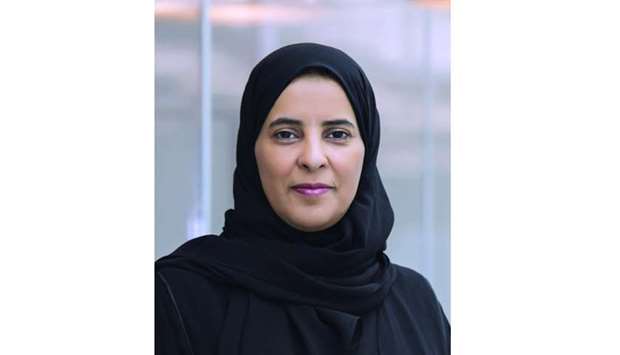School leaders and teachers must be allowed to take more risks and “fail well” if education systems are to see genuine improvement, a Qatar Foundation educator has said.
Dr Asmaa al-Fadala, director of Research and Content Development at the World Innovation Summit for Education (WISE), told policymakers, researchers, and education experts from more than 80 countries that many plans designed to raise the quality of learning in schools are not working - because schools themselves are removed from the process.
Speaking at the 33rd International Congress for School Effectiveness and Improvement in Marrakesh, al-Fadala said this means that strategies intended to drive up school standards “do not make sense to the educators in the frontline”, and that teachers need to be involved in developing them and given the freedom to decide how they implement them – with enhancing teacher expertise being vital to improving education systems.
“What policymakers often miss is the key element of working with schools and educators,” al-Fadala told the conference’s keynote session.
“Educators – whether they be school leaders, teachers, or administrators – play essential roles in every level of reform," she said.
“To have sustained improvement, we need to revisit the design of professional learning. We need to invest in teacher learning. We need to shift the discussion of what educational change we want to introduce to how to design professional learning in complex organisations like schools.”
In front of an audience including Moroccan Prime Minister Saadeddine Othmani and HE Dr Mohamed Abdul Wahed al-Hammadi, Minister of Education and Higher Education, al-Fadala said teachers must be able to discuss and debate the impact of improvement plans within their specific school, and “challenge the current practice and beliefs”.
Outlining four steps for enhancing teacher learning, al-Fadala - whose role at WISE, a Qatar Foundation member, includes working with schools to build their capacity as learners and designers for learning - said: “School leaders need to provide the time, resources, and support necessary for teacher learning to be most effective, and create a culture that is open to more risk-taking, where teachers and learners can try new ideas and test new models.”
“Any improvement agenda cannot be meaningfully implemented without creating an enabling culture, where schools need to start small, learn fast, and fail well. Some of the best, most effective learning comes from efforts and plans that were unsuccessful.”
Dr al-Fadala told the conference that “the capacity to continuously learn, to continuously improve” is key to future-proofing education.
“If the future’s going to keep changing on us, I don’t think it’s a matter of saying ‘These are the three things that our teachers and leaders need to know and let’s train them for it’,” she said.
Speaking at the 33rd International Congress for School Effectiveness and Improvement in Marrakesh, al-Fadala said this means that strategies intended to drive up school standards “do not make sense to the educators in the frontline”, and that teachers need to be involved in developing them and given the freedom to decide how they implement them – with enhancing teacher expertise being vital to improving education systems.
“What policymakers often miss is the key element of working with schools and educators,” al-Fadala told the conference’s keynote session.
“Educators – whether they be school leaders, teachers, or administrators – play essential roles in every level of reform," she said.
“To have sustained improvement, we need to revisit the design of professional learning. We need to invest in teacher learning. We need to shift the discussion of what educational change we want to introduce to how to design professional learning in complex organisations like schools.”
In front of an audience including Moroccan Prime Minister Saadeddine Othmani and HE Dr Mohamed Abdul Wahed al-Hammadi, Minister of Education and Higher Education, al-Fadala said teachers must be able to discuss and debate the impact of improvement plans within their specific school, and “challenge the current practice and beliefs”.
Outlining four steps for enhancing teacher learning, al-Fadala - whose role at WISE, a Qatar Foundation member, includes working with schools to build their capacity as learners and designers for learning - said: “School leaders need to provide the time, resources, and support necessary for teacher learning to be most effective, and create a culture that is open to more risk-taking, where teachers and learners can try new ideas and test new models.”
“Any improvement agenda cannot be meaningfully implemented without creating an enabling culture, where schools need to start small, learn fast, and fail well. Some of the best, most effective learning comes from efforts and plans that were unsuccessful.”
Dr al-Fadala told the conference that “the capacity to continuously learn, to continuously improve” is key to future-proofing education.
“If the future’s going to keep changing on us, I don’t think it’s a matter of saying ‘These are the three things that our teachers and leaders need to know and let’s train them for it’,” she said.

